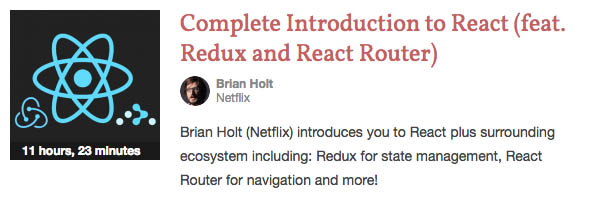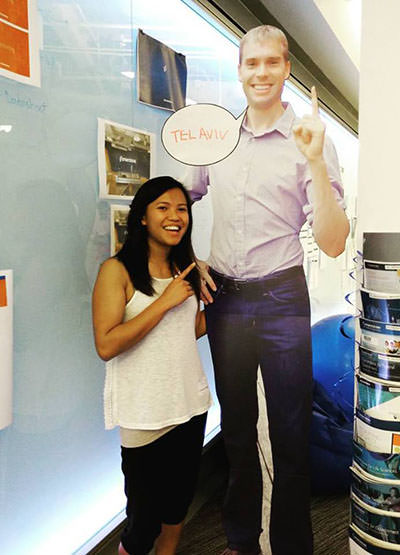Web Skills
I have a BS in Computer Science from the University of Iowa and have been a professional web developer for 17 years.
I maintain and improve my coding skills by using a variety of tools and materials. I train on Codewarsand CodeFights. I read books on programming like Clean Code and The Pragmatic Programmer.
I also subscribe to Frontend Masters so I can dive deeply into new technologies quickly. The courses range from 5 hours to 10 hours in length, but I usually spend double that coding the examples and creating flashcards of the material.



Communication
Good communication is often taken for granted, but I know that it doesn't happen automatically. Here are some steps I take to improve communication:
- I try to reduce the number of emails required to reach a decision or convey information by summarizing long email chains, and by asking multiple choice questions instead of open-ended questions (when appropriate).
- I'm aware of my audience and I adjust my language and jargon accordingly.
- I convey my uncertainty when I'm not sure about something and ask for other's input when warranted.
- I'm honest about weaknesses in my ideas (and other's ideas).
- I use screenshots and screencasts to capture information and context when it would be harder to convey using solely words.
Remote Work
After working in both corporate and home office environments, I've learned that working from home full-time takes a ton of self-discipline, as well as strong communication skills. My personality is a good match for this sort of work, and I've found that I can better attain a deep state of focus when I'm not in a bustling office.
However, there are challenges to not being physically present in the office. Psychological and technical barriers to setting up face-to-face video chats result in fewer interactions with my coworkers, which makes me sad. I try to increase my connection to the office by advocating the use of video presence software (like PukkaTeam or Perch.co) and by using high-quality equipment for video chats. I even bought a life-size cardboard cutout of myself for my team to keep in the office, complete with a dry-erase word bubble so they could give me things to say! : )
Deep Work
I’ve studied some ways of boosting my learning speed to help keep pace with the stream of new and shiny web technologies.
I enrolled in a Coursera online class called "Learning to Learn" at UC San Diego. The class details the latest research on how we learn best and most efficiently. I was surprised to discover that our brains continue to work on problems even when we take a break and do other activities, like taking a walk. These breaks allow “diffuse thinking” to occur and actually help our brains learn and process information faster. I used to try to work straight through long stretches of my work day, but now I take short breaks every couple of hours or even do 15 minutes of mindfulness meditation to help engage diffuse thinking and stay sharp all day long.
And according to Deep Work by Cal Newport, the way we focus matters a lot, too. When we focus on a problem or learn new material, what we're really doing is repeatedly firing a set of related neurons. As we fire them more and more, the connections become stronger and we start to solve problems and solidify our learning. However, each time a distraction breaks our concentration, our neural connections weaken. Because of this, I put my phone facedown on my desk so I don't see the notifications flash by, and I periodically close my email client for a couple of hours in the morning when I really need to focus.
Innovative Thinking
I often have unconventional ideas for new services, products, and work processes, and I love to share them. When my team sends out an email asking for ideas for a marketing campaign or event, I always reply. For example, the marketing team was working on a campaign for airports and one of the ideas I suggested was for airport bathrooms that would read "Don't flush away your talent".
At a team retreat, my company hired FutureThink to improve our innovative thinking. We learned how to give new ideas a fair shake instead of immediately shooting them down (i.e., thinking “How might we pay for this new idea?” instead of “This new idea is too expensive”). We learned how to reverse our assumptions to avoid being constrained artificially (“What if a restaurant brought food to where people are instead of vice versa?”).
When I have a frustrating experience with a device or a business, I like to troubleshoot the experience and figure out ways to make it better. Or—even more fun—envision new products or services that could solve the problem. To keep in our llamas, we use a semi-permanent fencing that needs re-adjusting every few months. My dream scenario would be a fluid fence made from self-charging drones. They could even have little water reservoirs to squirt the animals they're fencing if the animals challenge them.
Entrepreneurship
Last year I participated in two Startup Weekends, which were challenging and exciting. During the second Startup Weekend, I pitched an idea to help elderly people record their family stories and memories. My team’s great collaboration on the idea led to our winning free tuition to the University of Iowa's six-week Venture School at the Pappajohn Entrepreneurial Center.
In Venture School, my team and I conducted over 70 customer interviews to answer questions about our business model hypothesis. We also learned some of the pitfalls of startups, like focusing on launch dates instead of customer fit, or on an orderly set of steps instead of the messy process of discovery and learning. Each week we practiced five-minute pitches in front of the class (and sometimes investors) and worked closely with business community mentors and teachers to move as far through the startup process as we could in six weeks.
I really enjoyed these experiences and would like to incorporate the customer validation and product development elements in my career. That's why I'm looking for a job where I get to be involved in the design of the user experience.
